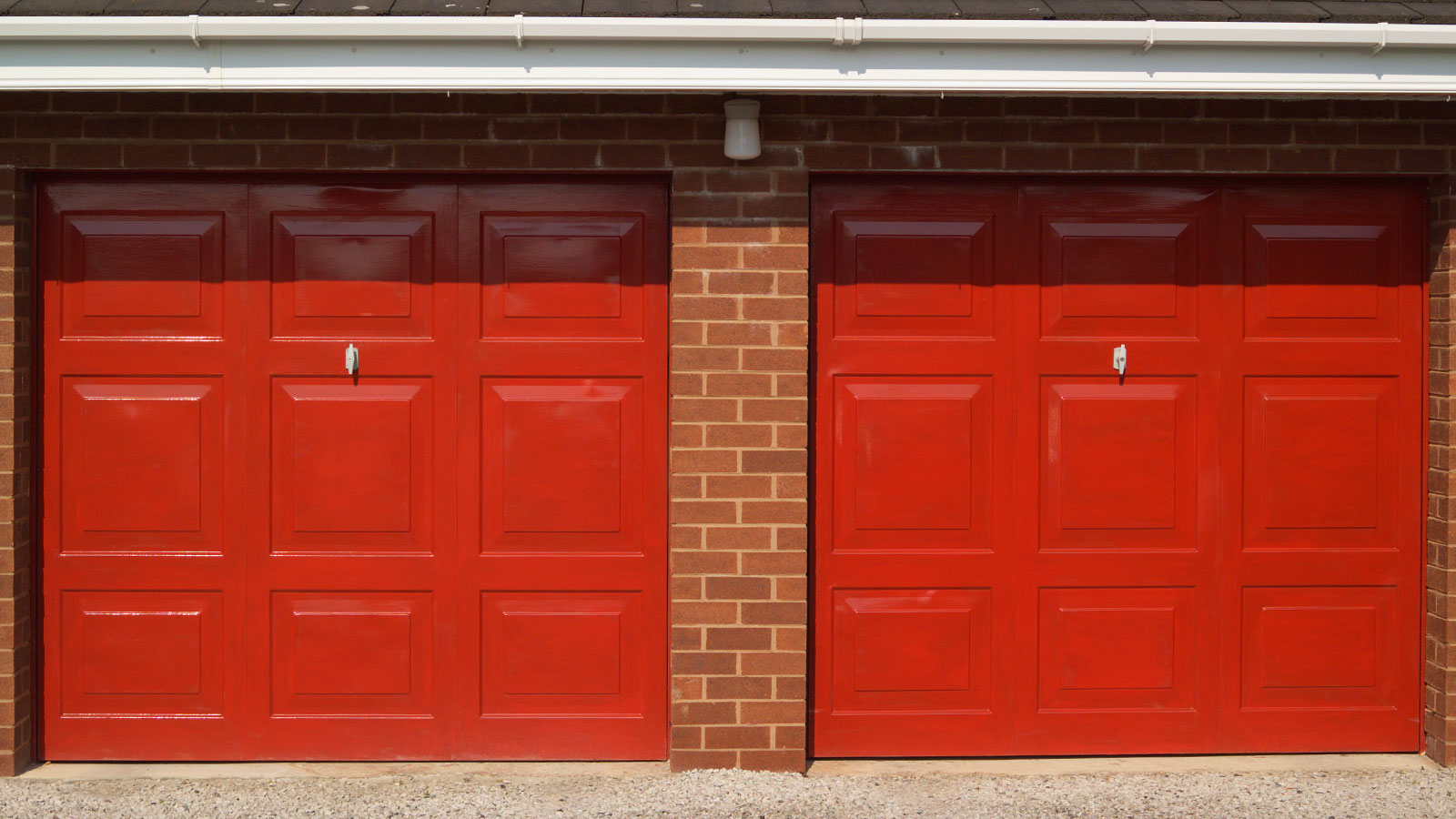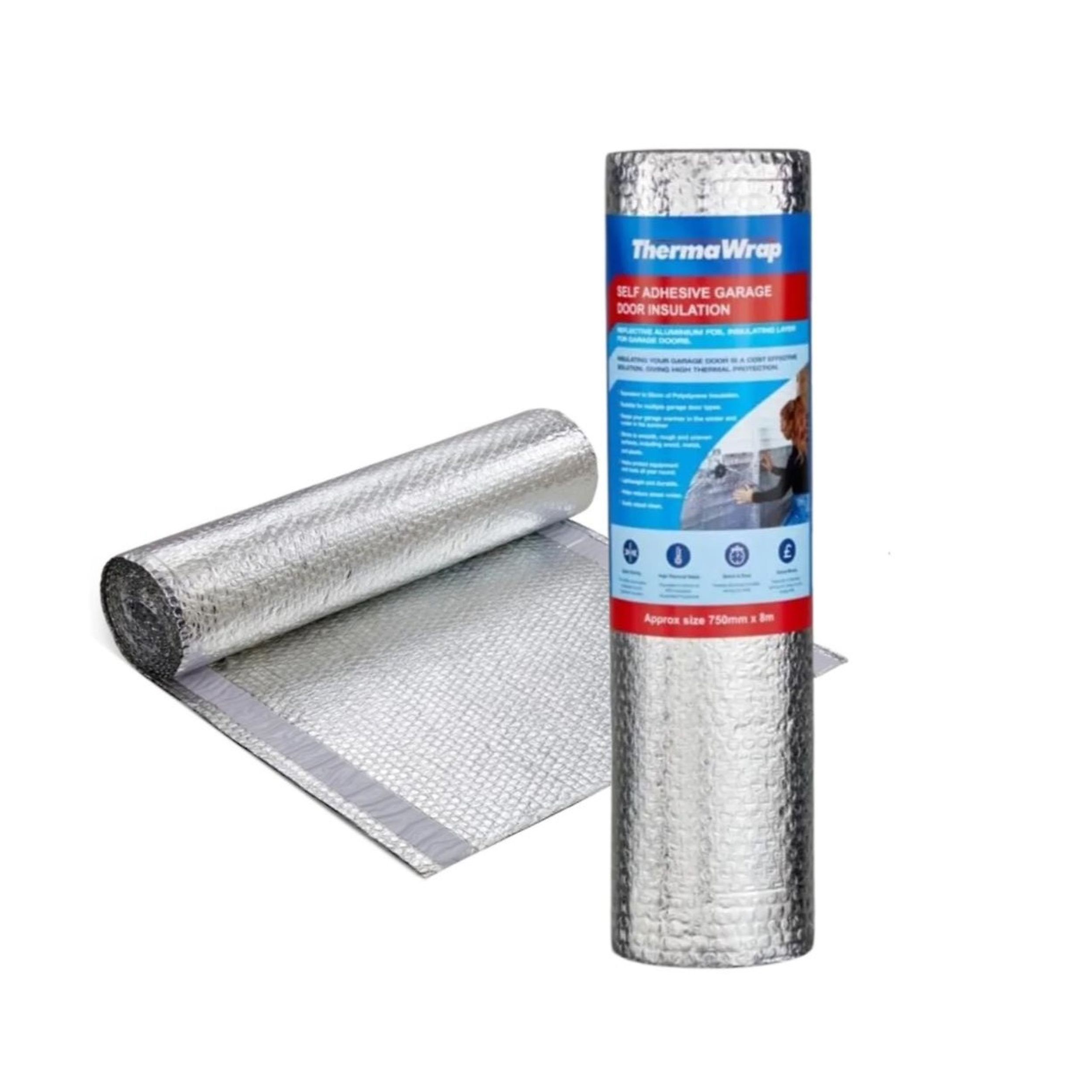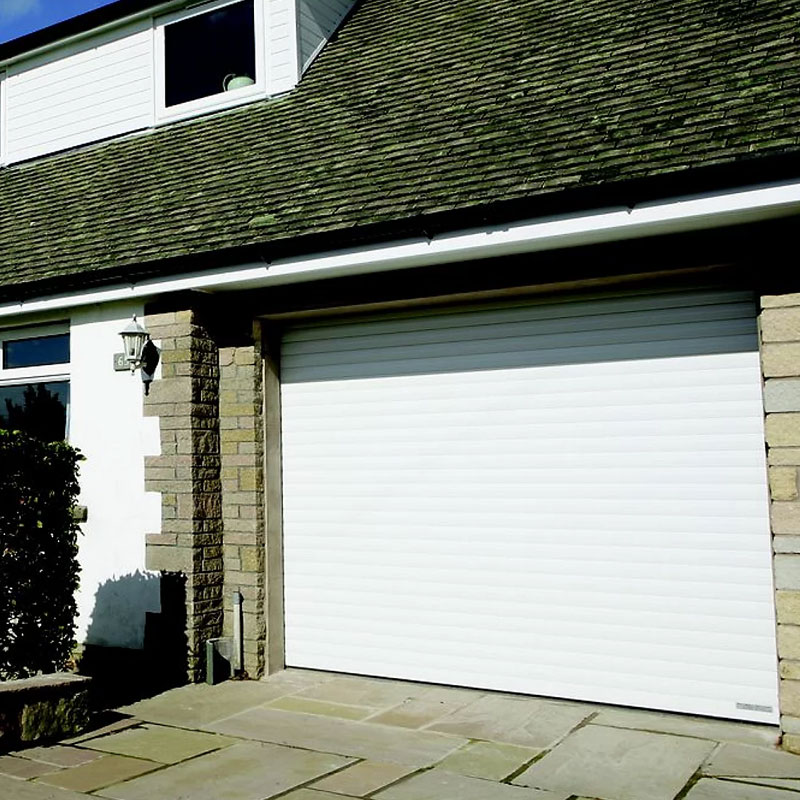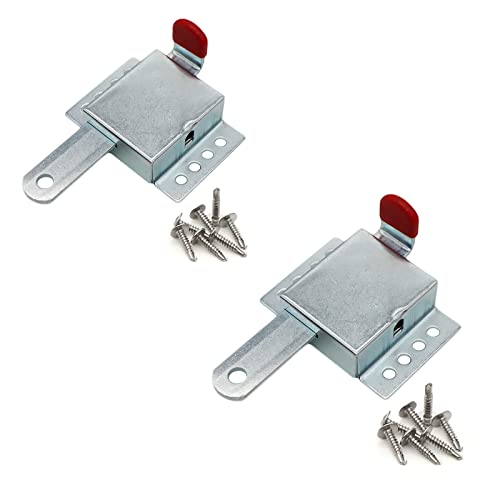How many types of garage doors are there? We look at the popular choices, plus how much you can expect to pay
Choosing which type of garage door you want isn’t always easy. But here you’ll find expert advice on the popular options to help you make the right choice

The type of garage door you choose will depend on various factors. You may be on a tight budget, have a bespoke-sized opening, or simply want the best or most secure.
Whatever your garage design, the door will need to be installed. You can do it yourself, but it’s recommended that you call a professional to do the job properly. So, don’t forget to add installation costs to your garage door cost.
Here, we look at the popular types of garage doors available and tell you how they work and how much you can expect to pay.

With a construction background and specialist product knowledge, John has been at Hillarys since 2018. He has a hands-on approach, dismantling each product down to component level and rebuilding it to truly understand how every part functions, passing that in-depth knowledge on to the national team.
Types of garage doors: The popular options
There are several types to choose from. Here, John Foster, exterior installation manager at Hillarys, outlines the common choices.
1. Up and over doors
These are the classic single-panel doors that tilt up and slide into the garage ceiling space.
2. Roller doors
Made from slats that roll up into a compact box above the opening, roller garage doors are great for saving space.
3. Side-hinged doors
Side-hinged garage door open outwards like traditional double doors. They are ideal for garages used for storage or workshops.
Bring your dream home to life with expert advice, how to guides and design inspiration. Sign up for our newsletter and get two free tickets to a Homebuilding & Renovating Show near you.
4. Sliding doors
These run along a track parallel to the wall and are a good option for wider openings or when ceiling space is limited.
5. Sectional doors
Sectional garage doors are made from horizontal panels that slide up and overhead, providing good insulation and security.
Try these to make more of your garage door
Cost of each type
Garage door costs depend very much on type, size, material and features, meaning prices can vary considerably. Foster shares, “Up-and-over doors are typically the cheapest, while sectional and sliding doors tend to be at the higher end due to their construction and features.”
Up and over doors start at around £400, but can be double the price, depending on the material and brand. They are typically made from galvanised steel, like this Elizabethan Horizontally Ribbed Up & Over White Retractable Garage door from B&Q.
Roller garage doors start from around £500-600 for a basic steel roller door, with prices rising to around £1500 for a top-quality design. You can expect to pay £800+ for a single skin steel or softwood side-hinged garage door. But again, prices can easily double or triple depending on materials and size.
Sectional garage doors are not a cheap option, with prices starting at around £2000 for a basic door. However, high-end versions with installation can reach £10000 and beyond, again, depending on size and materials.
Installation costs for each type
Prices can vary greatly depending on the type and size of the door. However, quoted prices typically include the garage door, frame, and installation. Therefore, the price you see is the price you pay.
Foster points out that the roller doors they sell start at £1299, which includes measuring, all the necessary hardware, and installation. He adds that sectional doors are more expensive, with prices (again including measuring, hardware, and installation) starting at £2,749. This provides a good guideline on the price you can expect to pay.
However, if you have already purchased a garage door, you only need to think about installation costs. As Alastair Mayne, COO at Garolla shares, “Professional fitting is key to the longevity and performance of your garage door.” He adds, “Labour costs range from £350 to £650 depending on where you live and how complex the job is."
As always, get quotes from three or four installers for more accurate pricing for your specific needs.

Alastair Mayne is the chief operating officer at Garolla, overseeing the strategy and day-to-day operations of the UK garage door company.
Garage door accessories
There’s a wide range of garage door accessories to choose from, some more obvious than others. Foster suggests “Electric openers (like this Chamberlain Comfort Garage Door Opener Kit from B&Q) and smart controls – allowing you to open and close your garage door remotely via smartphone.”
Beyond these, Foster says think about, “Windows or vision panels for natural light, weather seals (like this QWORK 6M Garage Door Rubber Seal from Amazon) to keep out draughts and sensors to detect if something is in front of a closing door.”
Adding or upgrading safety features is another sensible choice. Anthony Neary, security expert at Safe.co.uk, points out why, “Garage doors are a common target for burglars, so it’s vital to ensure they’re properly secured. He adds, “If the door relies on a basic manual lock, consider upgrading to a multi-point locking system or adding extra bolts for extra strength.”
Adding smart garage door technology is also a good choice. “The latest technology can help block signals from burglars, and send notifications to your mobile if the door is left open.” Neary continues, “Do not overlook garage windows, as they are a common way for burglars to gain entry. Fitting internal bars or applying privacy film can stop burglars from scoping out what’s inside.”
He ends with a word of advice: “Remember, the more difficult and time-consuming you make it to gain entry, the more likely an intruder will walk away.”

Anthony Neary is the founder and security expert at Safe.co.uk, one of the UK’s leading home and business security retailers. With over 15 years of industry experience, he specialises in security solutions and how to keep properties safe.
FAQs
Are insulated garage doors worth it?
The simple answer is yes, but it will depend on how a garage is used. If you use your garage to park your car, then there’s no need for an insulated door. The garage and door will provide enough protection.
But there are scenarios when an insulated garage is a real bonus, as Foster shares, “Insulated garage doors are definitely worth considering, especially if your garage is attached to your home or used as a workspace.”
He adds, “They help regulate temperature, reduce energy bills, and provide extra soundproofing.” But you will have to pay more for an insulated model, continues Foster, “While they are more expensive, they can make your garage far more comfortable and secure.”
There is the option to add insulation yourself, as Mayne points out, “Garage door insulation is available in foam sheets or insulation kits (like this SuperFOIL Garage Door Insulation Kit from Toolstation), easily found at most home improvement stores.” He adds, “These foam insulation kits are cost-effective and can reduce heat transfer by up to 97%.”
What type of garage door is the easiest to install?
Single up-and-over doors are considered the easiest type of garage door to install and one a competent DIYer can tackle. You will need to build a frame to attach the garage. This can be made from timber. Once the frame is in place, put the door in place, raise it around 10mm off the ground and then fix the spring-loaded bar and side tracks into place.
However, as a general rule, a garage door should be installed by a professional. Foster points out, “For garage doors – especially roller, sectional, or automated doors – I’d always recommend professional installation.”
He adds the reasons why, “It ensures the door is fitted safely, operates smoothly, and maintains your warranty. With Hillarys, our customers benefit from a complete end-to-end service included in the price.”
If you fancy an upgrade to a manual garage door, make sure to check out our electric garage doors guide. Follow this up by checking out our painting a garage door and how to maximise garage security to get more out of your garage door.
Steve Jenkins is a freelance content creator with over two decades of experience working in digital and print and was previously the DIY content editor for Homebuilding & Renovating.
He is a keen DIYer with over 20 years of experience in transforming and renovating the many homes he has lived in. He specialises in painting and decorating, but has a wide range of skills gleaned from working in the building trade for around 10 years and spending time at night school learning how to plaster and plumb.
He has fitted kitchens, tiled bathrooms and kitchens, laid many floors, built partition walls, plastered walls, plumbed in bathrooms, worked on loft conversions and much more. And when he's not sure how to tackle a DIY project he has a wide network of friends – including plumbers, gas engineers, tilers, carpenters, painters and decorators, electricians and builders – in the trade to call upon.




